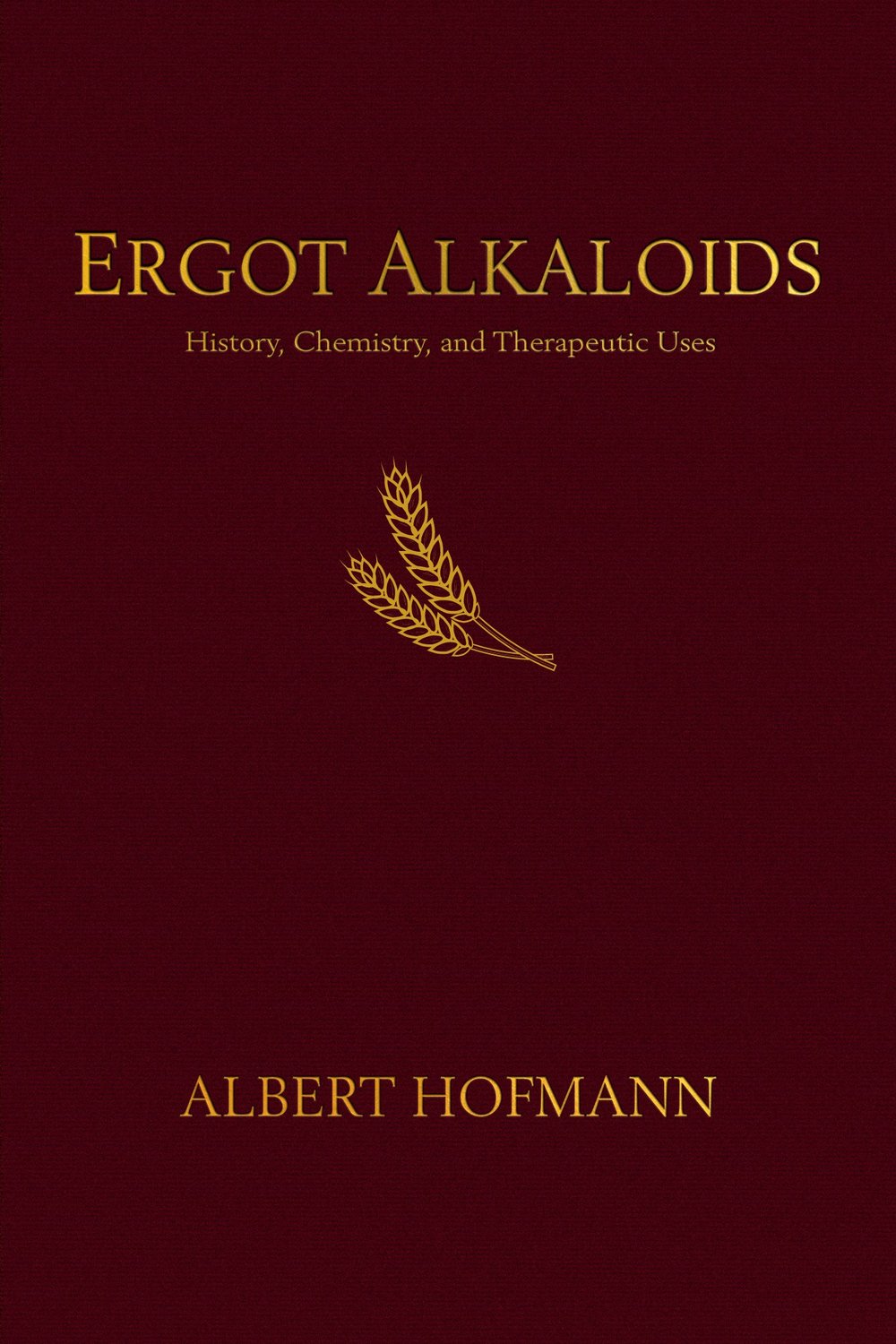Ergot Alkaloids
Their History, Chemistry, and Therapeutic Uses

The masterpiece we have all been waiting for in this classic text from the 60s, Ergot Alkaloids comes to life in the English translation of Albert Hofmann’s historic encyclopedia of Ergot Alkaloids and their derivatives.
This title is a detailed account of chemical compounds and pharmacological investigation into the potential of magical plants. Starting with the botany and cultivation of the ergot mushroom, Hofmann takes us through the historical elaboration of the fungus including the poisoning epidemic of ergot and its early medical uses all the way to the use of psilocybin as a “magical drug”. With a detailed timeline, we explore the growth of the pharmaceutical-chemical investigation from 1816 to 1961 with a total synthesis of ergotamine including tables of chemical structures and the role of lysergic acid, d-lysergic acid and diethylamide in experimental psychiatry gaining increasing importance in psychotherapy as a medical aid. Hofmann brings an observational account of these plants and their ceremonial and healing purposes still used by indigenous peoples such as the “Peyotl” cactus, “Teonanactl” the sacred mushroom of the Aztecs and “Ololiuqui” the seeds of bindweed plants.
With representations of over 30 chemical structures and pharmaceutical analysis, Hofmann introduces the next generation of scientific knowledge into the world of hallucinogenic plants and special subgroups of psychotropic drugs which he calls phantastica, hallucinogens, psychotomimetic, psychedelica, psychodysleptics and more.
